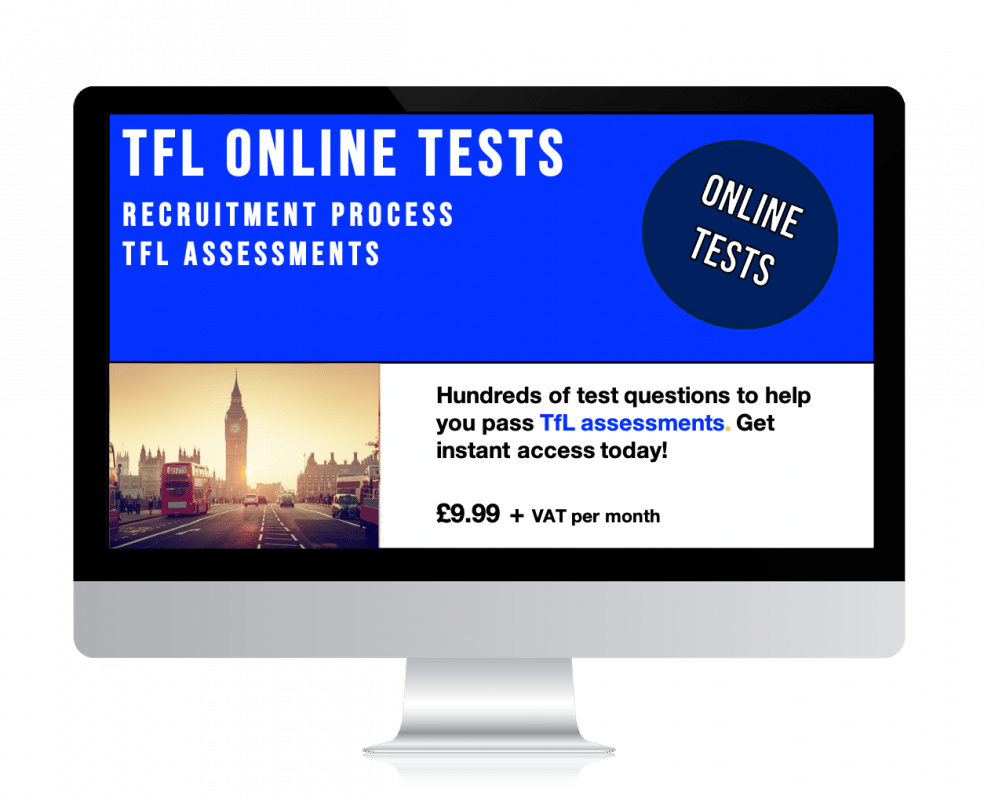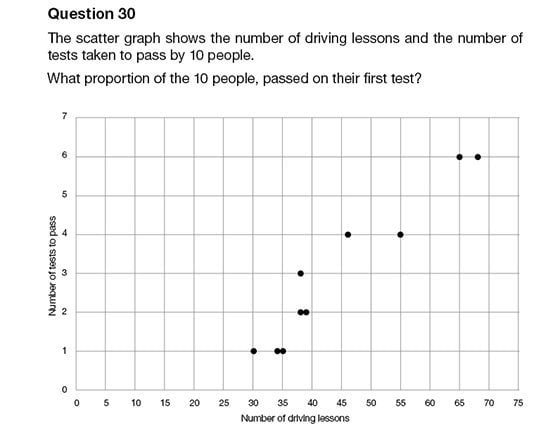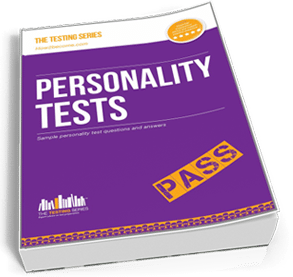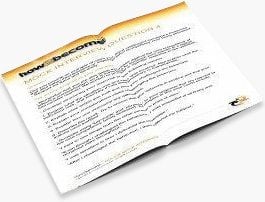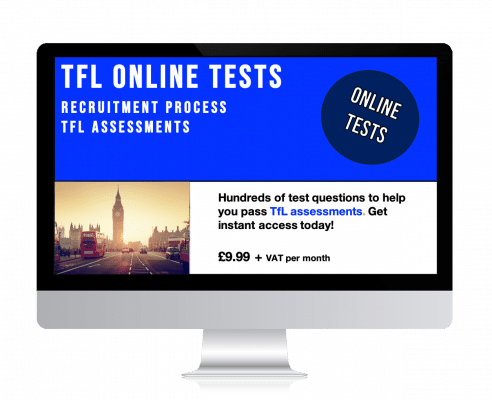If you are successful in your telephone or video interview, you’ll be invited to attend an assessment centre. This is one of the hardest parts of the TfL recruitment process, so you need to be prepared for what is to come. Below we will break down all of the potential tests that you could face:
GROUP EXERCISE
The first exercise that you may have to face, is the group exercise. A group exercise requires you to work with other members of your team, to come up with a solution for a problem.
When working in a group exercise, what counts is your individual input to the team. Essentially, you need to demonstrate that you have the ability to work with others, lead when necessary, contribute quality and logical points, persuade and communicate with other people, all without detriment to the group as a whole. Therefore, you won’t get any points for bullying or shouting at other candidates. You need to show that you are calm, reasonable and logical in the face of adversity, and that you can respect the opinions of others. In some cases, each member of the group will be given a specific role to play, and pre-written advice on what they should be aiming to get out of the meeting.
Let’s look at an example:
Q. You work for the TfL conservation committee. Recent transport developments have seen an increase in London’s pollution levels rise by over 2% in the past 6 months. Your task is to negotiate with the other members of the group, to see how things can be improved.’
This is a very basic example, and you’ll be given much more information, but hopefully this should give you some idea of what to expect. In this particular question, you will likely be paired up with other hypothetical members of TfL, all looking to make their own case. You’ll need to persuade these people to take your point of view, or work with them to change theirs.
WRITTEN EXERCISE
During the written exercise, you could be asked to do a number of different written tasks. This could include report writing, spelling checking or even letter writing. The key to preparing for this exercise is to brush up on your spelling, punctuation and grammar. This is what you will gain (and lose) you the most marks in this exercise. You need to have excellent attention to detail, and must be able to spot and correct grammatical mistakes quickly and efficiently. Below we’ve included a sample question:
SAMPLE QUESTION
Q. Identify (circle) the mistakes in the paragraph below. There are 7 in total.
Every day, my moter goes to the supermarkat to buy bread. She purchase’s 3 loaves in total – one French, one English and won Italian. My father is from italy, but hates the taste of Italian loaves. He says that they are to crunchy, too spicy and too grainey.
ANSWER
moter, supermarkat, purchase’s, won, italy, to, grainey.
DIAGRAMMATIC/LOGICAL REASONING
Next, you will sit a diagrammatic reasoning test. This test will consist of questions that relate to sequences, shapes and patterns. Every question will require you to fill in the missing step or image, using the selection of answers provided. It’s extremely important that you prepare well for these tests, because you really can. Unlike the role play, you can practice logical reasoning for months and months prior to the assessment, thereby ensuring that you are totally familiar with the test before it even takes place.
Below we have included a sample question from this type of assessment.
SAMPLE QUESTION
Q. Work out which option fits best in the missing square in order to complete the sequence.
ANSWER
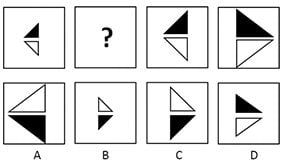
D
Explanation = Every even square has triangles pointing in the right direction, every odd square has triangles pointing in the left direction. The sequence progresses by the triangles getting bigger each time.
NUMERACY TEST
The next stage is a numerical assessment. Again, this can vary, but you are likely to be given 1 of 2 exercises. The first exercise could be similar to what you have already sat, but to a more advanced level. Again, you’ll be required to interpret data and information, but this time there will be more questions and less time in which to do it. The other test that you could be asked to take is a ticket inspection test. In this exercise, you will look through a series of replica train tickets, and must read the information provided to check whether the ticket is valid or contains mistakes.
Below we have included 2 sample questions from this type of exercise:
QUESTION 1
Q. Two adults have just arrived at the theme park on the 28.08.14 during peak hours. They have just bought two 1 day tickets for two adults. You give them their receipt.

Is their receipt correct?
QUESTION 2
Q. You have just served an adult and a child on the 07.06.13. The customers arrived during off-peak hours and purchased the 2 day tickets. You hand them their receipt of proof of payment.

Have they received the correct receipt details?
ROLE PLAY
Following this, it’s time for the role play. This is an exercise that intimidates a great number of candidates, and for good reason. The role play can be excruciatingly difficult, mainly because it is so hard to prepare for. If you aren’t familiar with role play exercises, here is the format. Firstly, you’ll enter a room containing an assessor and a role play actor. You’ll take a seat, and then the exercise will begin. Prior to the exercise, you will be briefed on the role that you are playing. The actor will also be given a part to play, usually of a difficult customer or someone who is unhappy about something. It is your job to deal with their (hypothetical scenario). Just as in the group exercise, it is imperative that you do not get angry or frustrated during the role play. You need to show that you are a calm, reassuring and logical person, who can deal with any issue that comes your way.
Below I’ve listed a typical example scenario that you could face:
Q. You are the customer services assistant for TfL. A disgruntled employee has come to you, claiming that they are being harassed by another member of staff. The employee is very angry, and demands to know what you are going to do to resolve their issue.
As you can see, the role play actor will do their best (within reason) to test your limits and make things uncomfortable for you. TfL needs to know that the individuals they are recruiting can cope with difficult customer interaction, and this is a great way of testing that.
PRESENTATION
The final assessment that you are likely to face, is the presentation. Prior to the assessment day, you will have been sent an information pack that relays everything about this task. Essentially, you’ll be given a topic, which you will need to research before attending and then present on to an audience of people. This shouldn’t be too hard, but some people really struggle with presentations. The key is to know your topic off by heart. Poor research will show in your presentation, and will result in poor marks. The best presentations are based on the back of solid evidence, structure and research, and show that the speaker really cares or is interested in their topic. Topics for the presentation could include:
-The history of TfL
-Issues currently facing TfL
-The importance of a certain sector in TfL
-How to guarantee great customer service.

